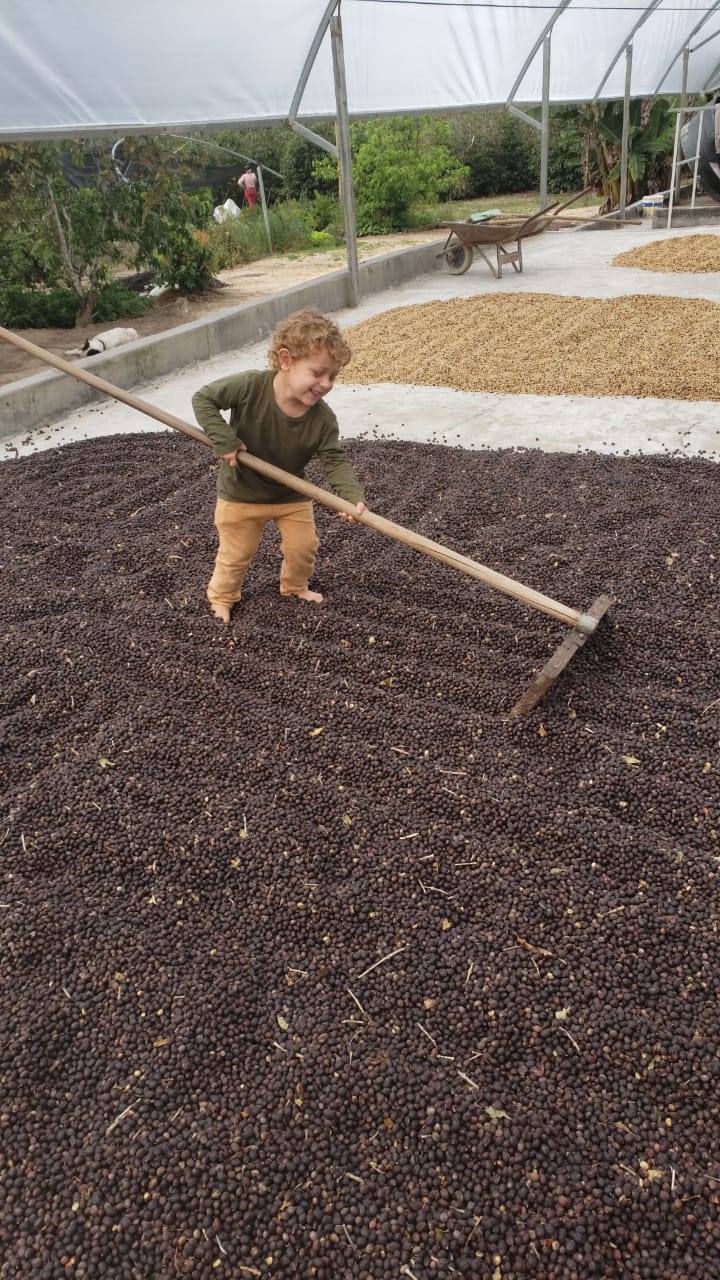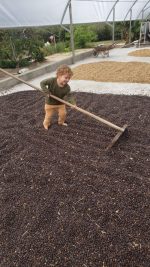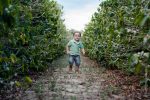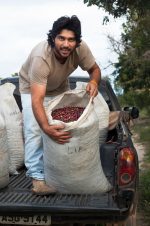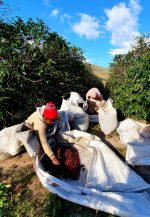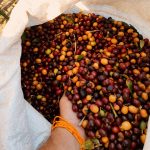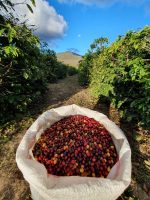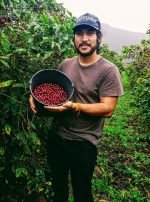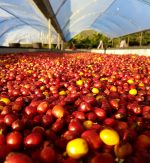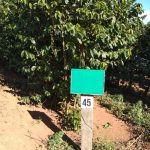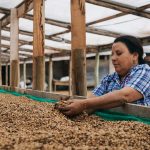88.88
Producer José Renato’s story begins in 2014 when his father could no longer take care of the property. He and his wife, Tainã, decided to take over responsibility for the 2.5-hectare coffee-producing property.
Differently from his father, he decided to invest in the quality of his coffees and saw great results already in the first year, achieving fifth place in the Cup of Excellence Brazil competition.
The couple continued working with familial agriculture and with the help of a few people during the harvest, among them their three-year old son Benjamin and his little sister who’s on the way. They hope she will also follow in their footsteps, making up the family’s third generation of coffee growers.
Together with other producers, they founded a cooperative called Coopiatã (Specialty Coffee and Agriculture Cooperative of Piatã). Coopiatã helps growers in the city to produce high-quality coffees, exploiting all of the potential of their terroir.
Today Chácara Vista Alegre is a reference for quality in the Chapada Diamantina region. The producers have managed to aggregate value in commercializing their coffees and have grown their production area by 1 hectare.
The coffee was picked selectively by hand. Then it was poured into a box without water for 24 to 36 hours in the shade and the temperature was monitored. Following this process, the coffee was removed from the box. The less dense fruits were taken to the African bed to be classified, leaving the fully ripe fruits. The less ripe, green cherries were removed.
Then the coffee was spread on the concrete patio until it reached the ideal humidity, between 13 and 14%. Finally, it was taken to a granary to rest.
Quality is the main focus. The producers keep up to date with news in the field, be it new crop management, new varieties, harvest and post-harvest techniques, markets, etc.
The harvest is 100% selective and manual and is done by women to achieve better selection of ripe cherries.
The producers have a 700m2 patio, 450m² being covered, like a greenhouse, African beds for sorting, and a suitable warehouse for better storage of the beans. Defects are manually removed from the beans after processing to deliver defect-free coffee for roasting. This is all done with much love and care!
| Rank | 5 |
|---|---|
| Farm Name | Chácara Vista Alegre |
| Farmer/Rep. | José Renato Rodrigues Alves |
| Altitude | 1268m |
| Country | Brazil |
| Year | 2020 |
| Size (30kg boxes) | 11 |
| City | Piatã-BA |
| Region | Chapada Diamantina |
| Program | Brazil 2020 |
| Auction | Cup of Excellence |
| Overall | Cooled mellow, Cream, Herbal as cooled, Solid body, Thick, Walnut |
| Aroma/Flavor | Caramel (3), Apple (2), Black Currant (2), Black Tea (2), Cherry (2), Cinnamon (2), Citrus (2), Green Tea (2), Mandarin Orange (2), Molasses (2), Orange (2), Syrupy (2), Burnt sugar, Barbueue, Boozy, Brown Spice, Brown Sugar, Candy, Chocolate, Citris, Cocoa, Complex, Cranberry, Dark cherry, Dark Chocolate, Dried Fruit, Earthy, Floral, Hazelnut, Hibiscus, Honey, Juicy, Mango, Mel, Melaço, Minty, Moreish, Nutty, Peach, Raisin, Red Grape, Roasted green tea, Savory, Sharp, Stewy, Stone Fruit, Sweet, Sweet & Sugary, Tangy, Tropical Fruit, Vanilla, Vegetal Earthy Herb, Walnut, Watermelon, White Grape |
| Acidity | Bright, Citric Acid, Citrus, Malic Acid, Medium impact, Tangerine, Tartaric acid, Vivid |
| Processing system | Natural |
| Variety | Catuaí 144 |
| Coffee Growing Area | 3,5ha |
| Farm Size | 16ha |
| Auction Lot Size (lbs.) | 727.53 |
| Auction Lot Size (kg) | 330 |

